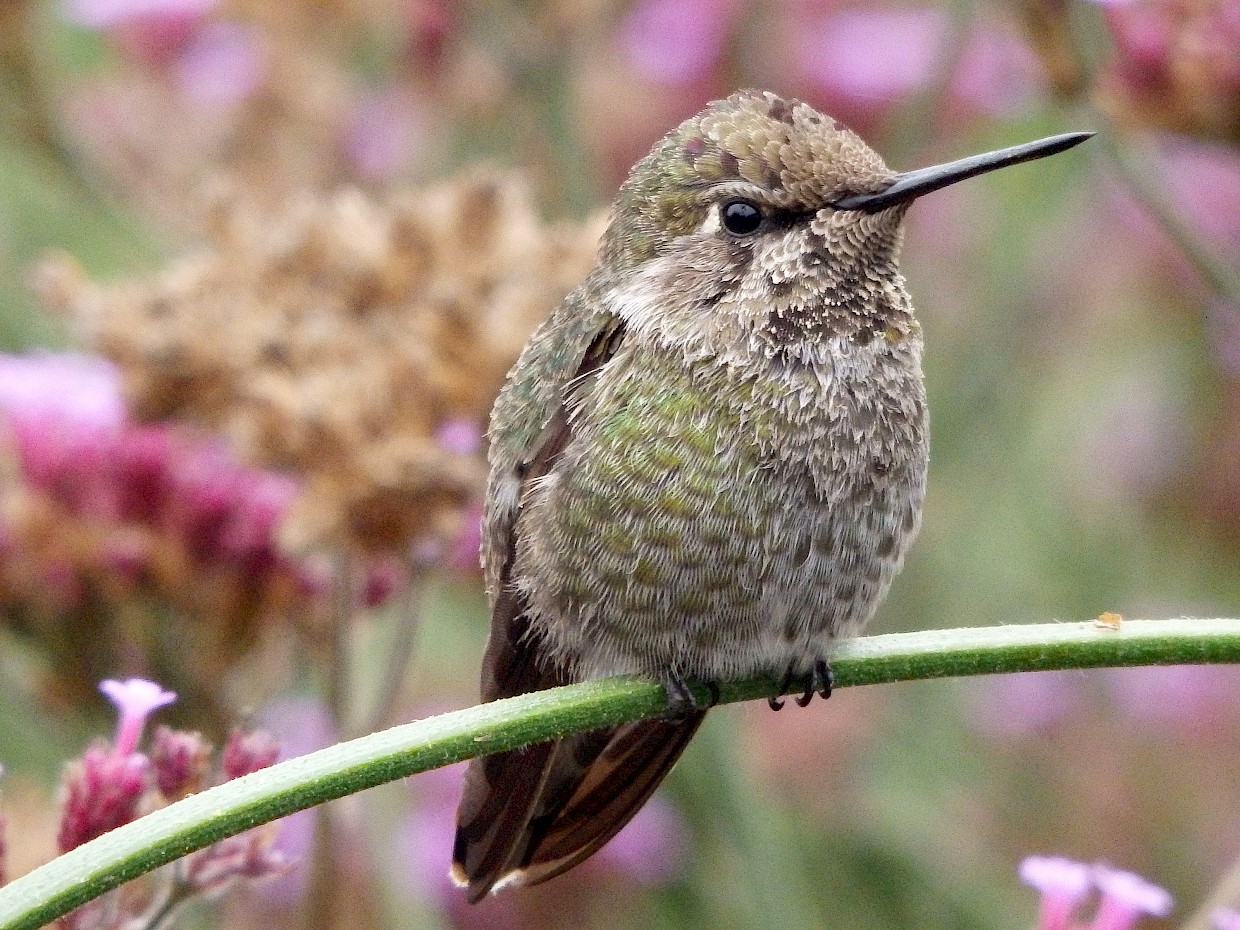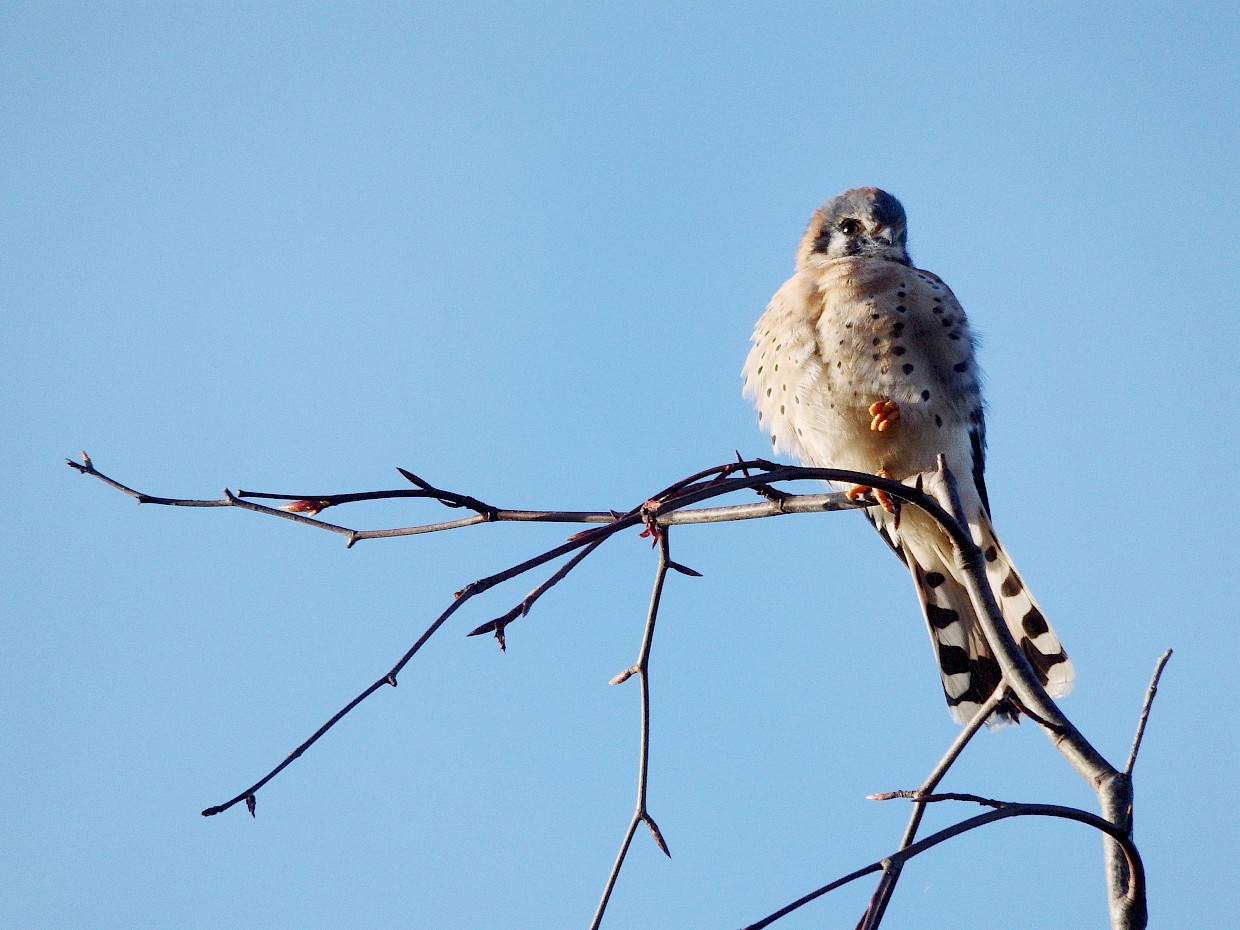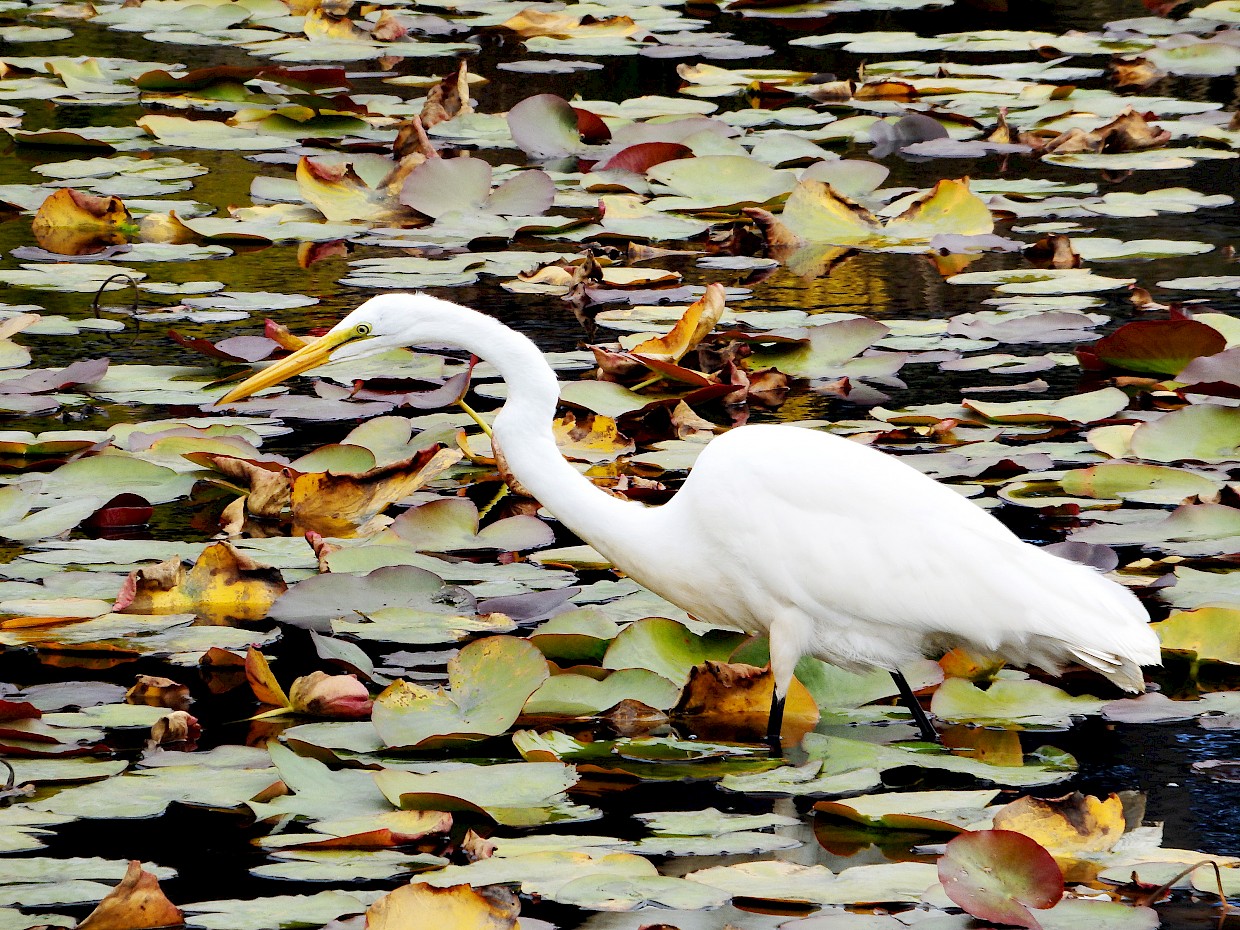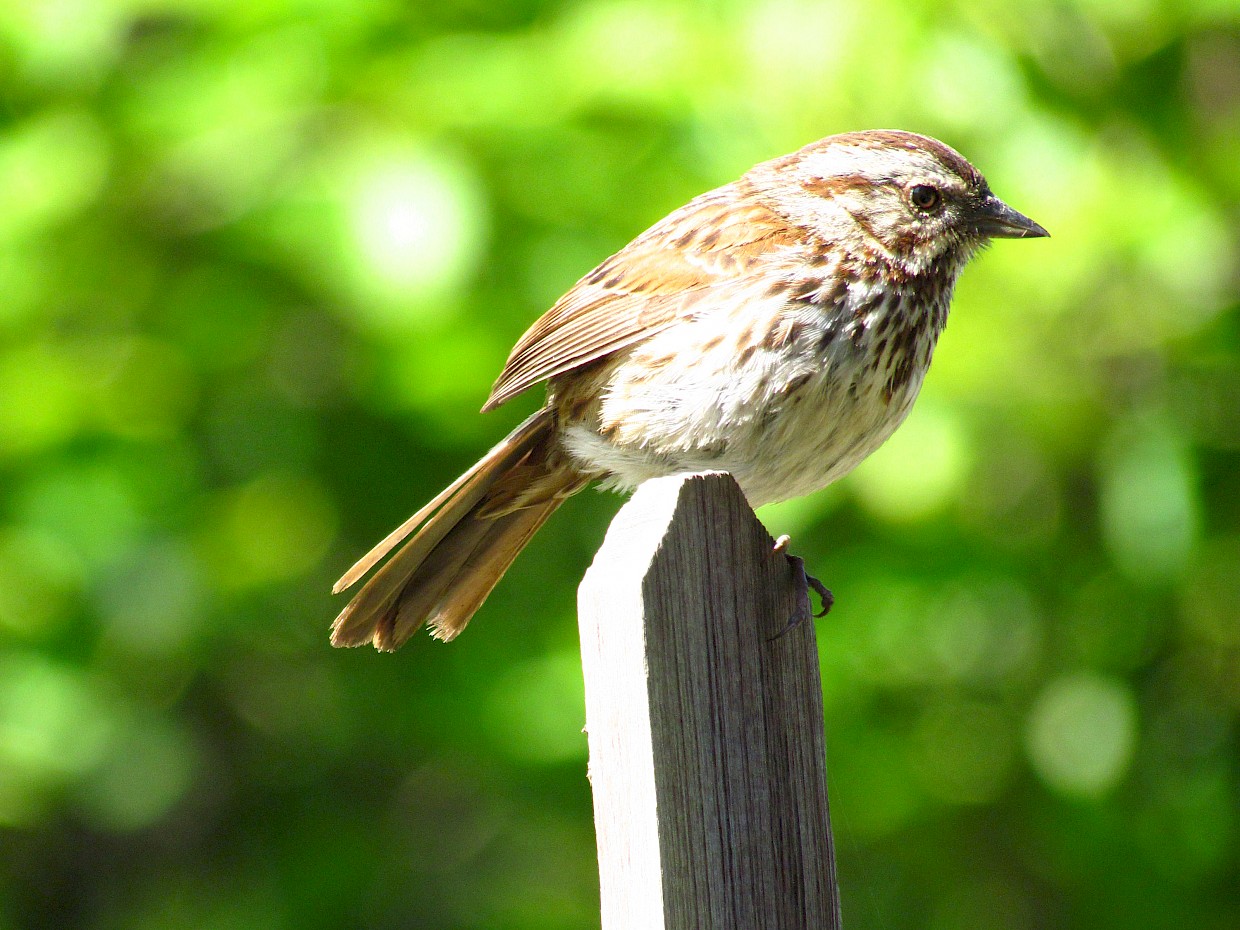Birds in the Gardens
There are about 225 bird species that have been observed at the Gardens.! Habitats in our 47 acres include cultivated gardens, native coastal pine forest, coastal bluffs and the rocky intertidal zone. Many species can be recorded flying past overhead or are seen on the ocean. About 90 species are commonly found in the Gardens at various times of the year.
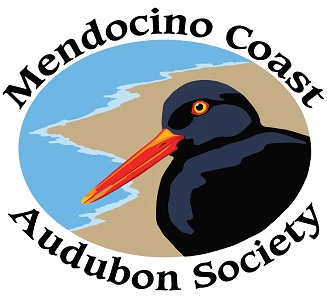 Every month two Bird Walks are held at the Gardens, led by a Mendocino Coast Audubon Society member. These are scheduled year-round. The Beginning Birding Walks is the first Saturday of every month at 9:00AM The Early Bird Walks are held the third Wednesday at 8:00AM April through October, the walks begin at 8:30AM November through March. Walks are free with regular Gardens admission and just plain free for members of the Gardens. If you join us for an Early Bird Walk please pay admissions as you exit. For information and cancellation notices visit the MCAS website.
Every month two Bird Walks are held at the Gardens, led by a Mendocino Coast Audubon Society member. These are scheduled year-round. The Beginning Birding Walks is the first Saturday of every month at 9:00AM The Early Bird Walks are held the third Wednesday at 8:00AM April through October, the walks begin at 8:30AM November through March. Walks are free with regular Gardens admission and just plain free for members of the Gardens. If you join us for an Early Bird Walk please pay admissions as you exit. For information and cancellation notices visit the MCAS website.
Consider becoming a member of the Mendocino Coast Audubon Society! The basic membership dues ($25 annually) support the important environmental education and conservation projects critical to the protection of wildlife and the environment.
Look at all the birds!
MCBG is a designated "Hotspot" on eBird – See Observations
iNaturalist documented sightings: Birds of MCBG
Mendocino County nightly migration: BirdCast
Here are a few favorites in the Gardens:
- Hummingbirds: Two species of these nectar-sipping acrobats are common among the flowering plants. Anna's, which is resident all year, and Allen's, which arrives in early spring and departs in early fall, after breeding. Anna's hummingbird shows iridescent red-violet on the crown and throat. Allen's flashes a red-orange throat patch.
- White Crowned Sparrow: One subspecies of this seed-eater is a year-round resident in the coastal zone. As adults, their crowns all show broad black stripes on a white background. In their first year, these stripes are reddish-brown on a buffy background. This sparrow is also abundant in coastal scrub.
- Chestnut-backed Chickadee: This chickadee frequents coastal pine forests from Alaska to Southern California gleaning insects from trunks and branches with its short, pointed bill. It is a year-round resident here. Like all chickadees it has a dark crown and throat patch and a white cheek patch, but it is the only chickadee with chestnut coloration on the back and the flanks.
- Wilson's Warbler: Bright yellow underneath, greenish above, with a glossy black cap (brighter in the male), this warbler is a summer resident and breeder, nesting on the ground. Like most warblers, it is primarily an insect-eater; it does a great deal of "fly catching" rather than gleaning.
- Osprey: This large fish-eating hawk can be seen and heard in spring and summer as it flies from nest to ocean and back. The osprey is one of the most widely distributed birds, being found even in Australia. Its body plumage is dark above and white below; the head is primarily white, with speckling on the crown and a heavy dark line through the eye and cheek. It flies with its wings arched and can often be seen carrying a fish in its talons.
- Common Raven: There are no crows on the Mendocino Coast, making identification of large all-black birds easy. The common raven is the largest member of the order of perching birds in North America. Like gulls, it is an omnivorous scavenger which adapts well to human civilization.
- Pelagic Cormorant: Of the three species of cormorant found locally, the pelagic cormorant is the only one that nests on rocks off the shore of the Gardens; Brandt's and double-crested may also be seen roosting on the rocks, in the water, or flying by. Cormorants are long-necked, long dark-bodied diving birds. The pelagic cormorant is the smallest of the three, and is most easily identified in spring and summer when it wears white flank patches.
Adapted from the Mendocino Coast Audubon Society MCBG Bird Checklist, 2016
Download the complete MCBG checklist now! (PDF)
To see photos of many of our birds, visit our Photo Gallery
Next: Employment Opportunities »
« Previous: Sculpture Exhibit

